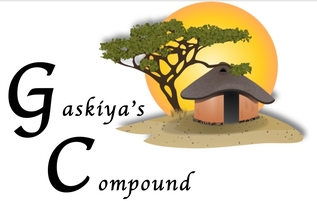African centered pedagogy plays a crucial role in Gaskiya’s Compound as a portal for African history and cultural arts. By adopting this educational approach, Gaskiya’s Compound can effectively fulfill its mission of empowering learners with a deep appreciation for African heritage, history, and culture. Here are some key reasons why African centered pedagogy is essential for Gaskiya’s Compound:
1. Cultural Relevance and Authenticity: African centered pedagogy ensures that the curriculum, teaching methods, and resources used in Gaskiya’s Compound are culturally relevant and authentic to the African experience. It avoids Eurocentric biases and stereotypes, presenting African history and cultural arts in a respectful and accurate manner.
2. Empowering African Perspectives: By centering the educational experience on Africa and its contributions, learners at Gaskiya’s Compound are empowered to develop a positive self-identity and a strong connection to their African heritage. This fosters a sense of pride, cultural awareness, and self-confidence.
3. Challenging Misconceptions and Stereotypes: African centered pedagogy actively challenges misconceptions and stereotypes that have historically misrepresented Africa and its people. It promotes a balanced view of Africa’s history, diversity, and accomplishments, countering harmful narratives with well-researched and nuanced perspectives.
4. Building Cultural Competence: Learners at Gaskiya’s Compound gain cultural competence and a deeper understanding of African customs, traditions, and artistic expressions. This knowledge fosters empathy, appreciation for diversity, and a broader worldview.
5. Fostering Critical Thinking: African centered pedagogy encourages learners to think critically, question prevailing narratives, and analyze historical and cultural information from multiple perspectives. This nurtures a well-rounded understanding of complex issues and encourages independent thought.
6. Nurturing Global Citizenship: As a portal for African history and cultural arts, Gaskiya’s Compound fosters a sense of global citizenship among learners. By appreciating Africa’s influence on the world, learners develop a deeper appreciation for interconnectedness and the contributions of diverse cultures.
7. Creating Inclusive Learning Environments: African centered pedagogy prioritizes creating inclusive and safe learning environments for learners of all backgrounds. It values diversity and actively seeks to address the unique needs and experiences of each learner.
8. Empowering African Educators and Artists: By emphasizing an African centered approach, Gaskiya’s Compound supports and empowers African educators, historians, artists, and cultural practitioners. It provides a platform for their expertise and contributions to be recognized and shared with a global audience.
9. Fostering Identity Affirmation: African centered pedagogy fosters identity affirmation for learners of African descent. By recognizing and validating their heritage, it helps learners build a strong sense of identity and belonging.
In conclusion, adopting African centered pedagogy at Gaskiya’s Compound is instrumental in achieving its mission of celebrating Africa’s history and cultural arts. By embracing this approach, Gaskiya’s Compound can create a transformative and culturally enriching learning experience that empowers learners to become knowledgeable, compassionate, and globally conscious individuals.




